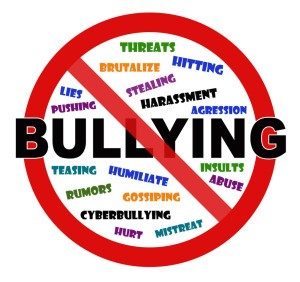Firstly What is Bullying?
Bullying is defined as:
“unwanted, aggressive behaviour that involves a real or perceived power imbalance. The behavior is repeated, or has the potential to be repeated, over time”.

In order to be considered bullying, the behaviour must be aggressive and include:
- An Imbalance of Power: Kids who bully use their power—such as physical strength, access to embarrassing information, or popularity—to control or harm others. Power imbalances can change over time and in different situations, even if they involve the same people.
- Repetition: Bullying behaviors happen more than once or have the potential to happen more than once.
What Is NOT Bullying?
Bullying is NOT:
- Excluding someone
It is not considered bullying if children exclude someone on the playground now and then or don’t invite someone to a party. Repeated and deliberate exclusion, however, can be bullying.
- Disliking someone
Children may verbally or nonverbally communicate their dislike of another child. This is okay, as long as they don’t start rumors or verbally abuse the other child.
- Accidental physical harm
A child might unintentionally bump into or trip another child. This it is not bullying if it is not deliberate.
- Being “bossy”
It is natural to want friends to play a certain way, and some children take the role of being the director. Learning to lead skillfully is a lifelong process, and most kids haven’t mastered it.
- Telling a joke about someone (once)
While this is not great behavior, it is not considered bullying unless there are repeated instances. Of course we should teach our children that one single joke about someone may hurt that child’s feelings, and it’s not okay.
- Arguments
We all argue, and arguments will inevitably happen at school.
People who are bullied are more likely to:
- feel disconnected from school or work
- have lower academic outcomes, including lower attendance and completion rates
- lack quality friendships at school or work
- display high levels of emotion that indicate vulnerability and low levels of resilience
- be less well accepted by peers, avoid conflict and be socially withdrawn
- have low self-esteem
- have depression, anxiety, feelings of loneliness and isolation
- have nightmares
- feel wary or suspicious of others
- have an increased risk of depression and substance abuse
- in extreme cases, have a higher risk of suicide, however, the reasons why a person may be at risk of suicide are extremely complicated.
If you or someone you care about has been impacted by bullying, The Psych Professionals is here to help.
We offer remote telehealth consultation or if you are in Cleveland or Loganholme in Qld Australia, book an in-person appointment with our psychologists
